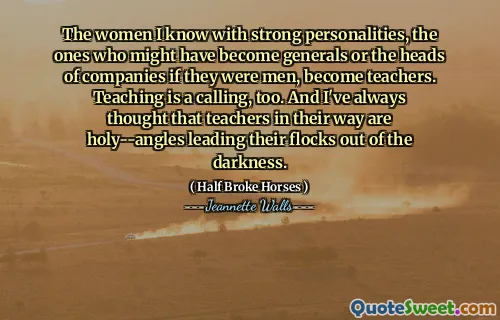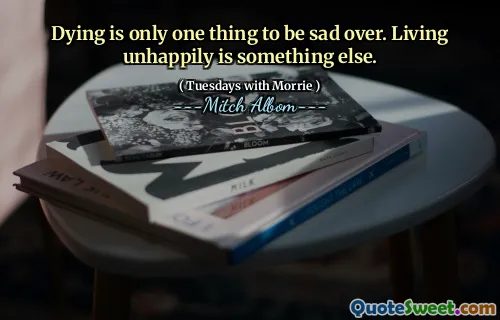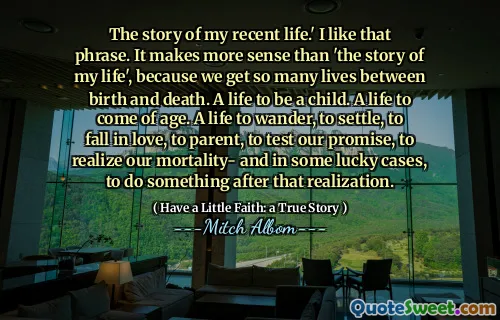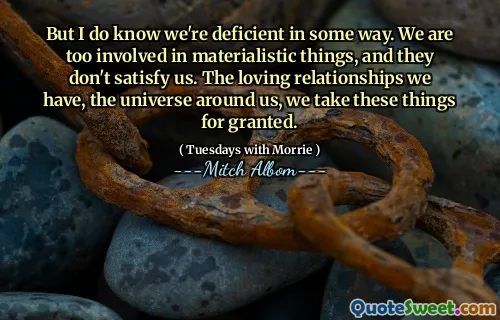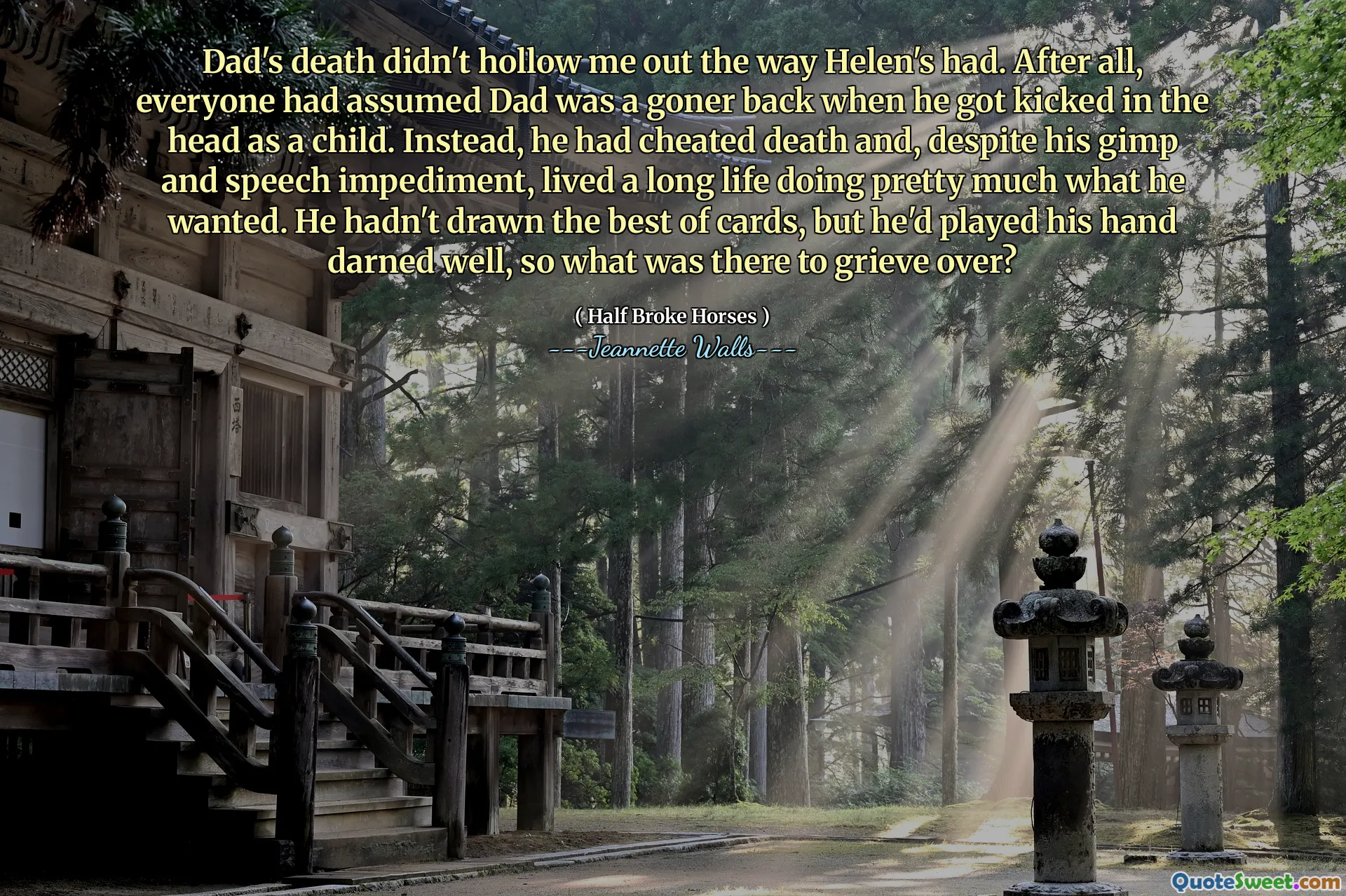
Dad's death didn't hollow me out the way Helen's had. After all, everyone had assumed Dad was a goner back when he got kicked in the head as a child. Instead, he had cheated death and, despite his gimp and speech impediment, lived a long life doing pretty much what he wanted. He hadn't drawn the best of cards, but he'd played his hand darned well, so what was there to grieve over?
The narrator reflects on the contrasting impacts of their father's and Helen's deaths. While Dad's passing was expected, given his childhood injury that nearly killed him, he managed to defy the odds and live life on his own terms with resilience. His long life filled with personal choices created a sense of acceptance rather than loss for the narrator. They feel that Dad had made the most of what he had, making it difficult for them to feel profound grief.
This perspective emphasizes the narrator’s understanding of life's unpredictability and their father's triumph over adversity. Instead of being hollowed out by grief, they recognize Dad's ability to live well despite his worst circumstances. This acceptance allows the narrator a unique ability to celebrate their father's life rather than mourn his death, contrasting sharply with the more painful loss experienced with Helen.



